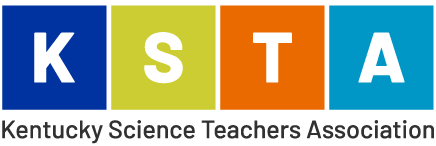Darby Beane, Sep 26, 2023
Updated Sep 26, 2023
ELIZABETHTOWN, Ky. (WDRB) -- Students in Hardin County are applying their studies to real-world problem solving by helping NASA with research. The focus is on hydroponics, in which plants are grown in water instead of soil.
A group of about two dozen John Hardin High School students, mostly freshmen, are researching hydroponic techniques in Jeremy Hall's agricultural education class.

Hardin County students planning to send research to NASA. (Photo provided by Jeremy Hall)
Hall, in his 24th year teaching, explained that this is a project between groups including the Fairchild Tropical Botanical Garden in Florida and NASA. He also said his class is working with a corporation called MARSfarm. Use this link to learn more about the products MARSfarm has to offer science teachers!
Hall said the goal is to conduct research for NASA to help develop hydroponic techniques in the space program.
"We applied for it and got chosen, and so we're going to be testing about eight different plant cultivars to see performance-wise how they do and we will share that data with NASA in about 28 days. We actually start seeding tomorrow," Hall said Tuesday.
According to Fairchild Tropical Botanical Garden, the Growing Beyond Earth program is a "classroom-based citizen science project operated in partnership with NASA, designed to advance NASA research on growing plants in space. It includes a series of plant experiments conducted by students in a Fairchild-designed plant habitat similar to the Vegetable Production System (Veggie) on the International Space Station."
Hall said his students are working in groups as engineers, mission leads, and botanists to conduct the research. There's a poster at John Hardin High School now marking the 'Active Research Site' saying:
"This school is actively testing edible plant cultivars to assist scientists at NASA. Data will help determine which plants will be considered for growth in future space missions."
"All these trials are going into the Artemis project which is the big lunar-based project they're [NASA] hoping to start," said Hall.
He said students are excited to see their work have meaning in real-world application and said even if their research shows failure, as long as they understand why, it will be valuable information to share.
"I think one of my kids had a really good point yesterday. They were like, 'Man this is going to be cool when I'm 70-years-old I can tell my grandkids, 'You see those plants? They're growing there on that moon base. I was part of that,'" said Hall.

Hardin County students planning to send research to NASA. (Photo provided by Jeremy Hall)
While the classroom environment won't be able to replicate scenarios like changes in gravity, Hall said research can show which plant varieties grow the fastest, produce the most, and have the highest nutritional value. He explained that different schools are studying other environmental impacts.
At the end of the first phase of the trial, Hall said results will be sent to NASA. Students will have the opportunity to join a virtual conversation with NASA engineers and botanists and then together, design another round of experiments where they may change aspects such as humidity or lighting to look at more results.
Copyright 2023 WDRB Media. All Rights Reserved.
